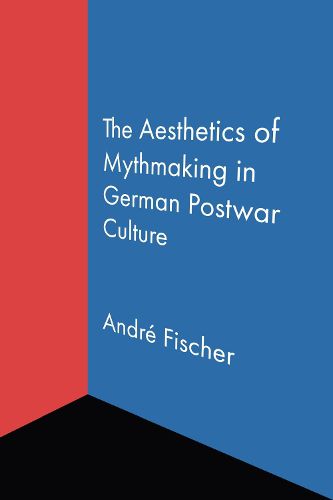Readings Newsletter
Become a Readings Member to make your shopping experience even easier.
Sign in or sign up for free!
You’re not far away from qualifying for FREE standard shipping within Australia
You’ve qualified for FREE standard shipping within Australia
The cart is loading…






Debunking myths plays a crucial role in media literacy, but doing so can let us overlook why myths are created in the first place and why we need them. AndrE Fischer draws on key examples from German postwar culture, from novelists Hans Henny Jahnn and Hubert Fichte, to sculptor and performance artist Joseph Beuys, and filmmaker Werner Herzog, to show that myth is an indispensable human practice in times of crisis.
Against the background of the nineteenth-century visions of a new mythology and its ideological continuation in Nazism, new forms of mythmaking in the narrative, visual, and performative arts emerged as an aesthetic paradigm in postwar modernism. Boldly rewriting the cultural history of an era and setting in transitional, The Aesthetics of Mythmaking in German Postwar Culture counters the predominant narrative of an exclusively rational VergangenheitsbewAEltigung ("coming to terms with the past"). Far from being merely reactionary, the turn toward myth offered a dimension of existential orientation that had been neglected by other influential aesthetic paradigms of the postwar period. Fischer's wide-ranging, transmedia account offers an inclusive perspective on myth beyond mere storytelling and instead develops mythopoesis as a formal strategy of modernism at large.
$9.00 standard shipping within Australia
FREE standard shipping within Australia for orders over $100.00
Express & International shipping calculated at checkout
Debunking myths plays a crucial role in media literacy, but doing so can let us overlook why myths are created in the first place and why we need them. AndrE Fischer draws on key examples from German postwar culture, from novelists Hans Henny Jahnn and Hubert Fichte, to sculptor and performance artist Joseph Beuys, and filmmaker Werner Herzog, to show that myth is an indispensable human practice in times of crisis.
Against the background of the nineteenth-century visions of a new mythology and its ideological continuation in Nazism, new forms of mythmaking in the narrative, visual, and performative arts emerged as an aesthetic paradigm in postwar modernism. Boldly rewriting the cultural history of an era and setting in transitional, The Aesthetics of Mythmaking in German Postwar Culture counters the predominant narrative of an exclusively rational VergangenheitsbewAEltigung ("coming to terms with the past"). Far from being merely reactionary, the turn toward myth offered a dimension of existential orientation that had been neglected by other influential aesthetic paradigms of the postwar period. Fischer's wide-ranging, transmedia account offers an inclusive perspective on myth beyond mere storytelling and instead develops mythopoesis as a formal strategy of modernism at large.